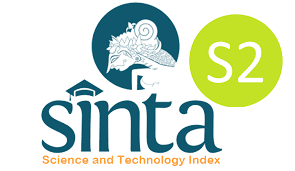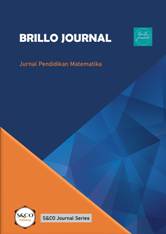Mathematics Resiliency in the New Normal: A Theory Development
DOI:
https://doi.org/10.56773/bj.v2i2.34Keywords:
Coping mechanism, Deductive theory development, ResiliencyAbstract
This paper aimed to generate a theory that answers the question, “How do students cope with the challenges in learning mathematics in the normal? This study made used of the deductive axiomatic approach in theory generation following the steps prescribed by Padua (2012). Four axioms were formulated: (1) Students employ time management in studying math; (2) Students uses compensation strategies in overcoming challenges; (3) Students’ resourcefulness leads them to learn mathematics; and (4) Students asked help from teachers and peers in understanding mathematical concepts. Two propositions were derived from these axioms: students’ cope with the challenges in learning mathematics by (1) direct coping strategies support students’ resiliency in learning mathematics and (2) Indirect coping strategies indirectly provide support for coping strategies through planning, socializing with others and increasing empathy. From these propositions, the Students’ Mathematics Resiliency Based Theory is formulated: The Students’ Mathematics Resiliency Theory states that resiliency in learning mathematics is affected by both direct and indirect coping strategies. Direct coping strategies include compensation strategies, while indirect strategies include social, time management, and resourcefulness.
References
Agum, A. N. C., Naidas, M. S., Dorado, L. B., Bhattrai, J. L. T., Lagajino, E. L. V., & Mergal, V. C. (2021). Filipino College Students’ Perspectives on the Challenges, Coping Strategies, and Benefits of Self-Directed Language Learning in the New Normal. Human Behavior, Development and Society, 22(2), 72-83.
Avcı, N., & Kaya, G. (2021). The relationship of learned resourcefulness with self-leadership skills: A study with nurse and midwife students. Nurse Education Today, 107, 105125. https://doi.org/10.1016/j.nedt.2021.105125
Ayed, N., Toner, S., & Priebe, S. (2019). Conceptualizing resilience in adult mental health literature: A systematic review and narrative synthesis. Psychology and Psychotherapy: Theory, Research and Practice, 92(3), 299-341. https://doi.org/10.1111/papt.12185
Bettinger, E., Ludvigsen, S., Rege, M., Solli, I. F., & Yeager, D. (2018). Increasing perseverance in math: Evidence from a field experiment in Norway. Journal of Economic Behavior & Organization, 146, 1-15. https://doi.org/10.1016/j.jebo.2017.11.032
Borsboom, D., van der Maas, H. L., Dalege, J., Kievit, R. A., & Haig, B. D. (2021). Theory construction methodology: A practical framework for building theories in psychology. Perspectives on Psychological Science, 16(4), 756-766. https://doi.org/10.1177/1745691620969647.
Castroverde, F., & Acala, M. (2021). Modular distance learning modality: Challenges of teachers in teaching amid the Covid-19 pandemic. International Journal of Research Studies in Education, 10(8), 7-15. https://doi.org/10.5861/ijrse.2021.602
Chen, C. (2016). The role of resilience and coping styles in subjective well-being among Chinese university students. The Asia-Pacific Education Researcher, 25, 377-387. https://doi.org/10.1007/s40299-016-0274-5
Chen, C., Song, X., Wei, W., Zhong, H., Dai, J., Lan, Z., ... & Jia, H. (2017). The microbiota continuum along the female reproductive tract and its relation to uterine-related diseases. Nature communications, 8(1), 875. https://doi.org/10.1038/s41467-017-00901-0
Chen, H. Y., Das, A., & Ivanov, D. (2019). Building resilience and managing post-disruption supply chain recovery: Lessons from the information and communication technology industry. International Journal of Information Management, 49, 330-342. https://doi.org/10.1016/j.ijinfomgt.2019.06.002
Dilla, S. C., Hidayat, W., & Rohaeti, E. E. (2018). Gender and Resilience Factors in Achieving High School Mathematical Creative Thinking Ability. Journal of Maldives, 2(1), 129-139.
Dray, J., Bowman, J., Campbell, E., Freund, M., Wolfenden, L., Hodder, R. K., ... & Wiggers, J. (2017). Systematic review of universal resilience-focused interventions targeting child and adolescent mental health in the school setting. Journal of the American Academy of Child & Adolescent Psychiatry, 56(10), 813-824. https://doi.org/10.1016/j.jaac.2017.07.780
Ferrari, R. (2015). Writing narrative style literature reviews. Medical writing, 24(4), 230-235. https://doi.org/10.1179/2047480615Z.000000000329
Grageda, C. N., Diokno, R. P., & Abadiano, M. N. (2023). Teaching Experiences of Early Childhood Educators in the New Normal: The Multi-Faceted Endeavor Theory. Russian Law Journal, 11(9s), 184-196. https://doi.org/10.52783/rlj.v11i9s.1578
Grey, I. M., Al Saihati, B., & McClean, B. (2013). Teaching behaviour change skills to undergraduate medical students. Journal of Contemporary Medical Education, 1(4), 231-237. https://doi.org/10.5455/jcme.20131105073307
Gueta, M. and Janer, S. (2021). Distance learning challenges on the use of self-learning module. United International Journal for Research & Technology, 2(7), 58-71.
Henningsen, D. D., & Henningsen, M. L. M. (2018). Does brainstorming promote cohesiveness? How the rules of brainstorming mirror symbolic convergence. Communication Reports, 31(2), 103-114. https://doi.org/10.1080/08934215.2017.1394476
Hernandez‐Martinez, P., & Williams, J. (2013). Against the odds: resilience in mathematics students in transition. British Educational Research Journal, 39(1), 45-59. https://doi.org/10.1080/01411926.2011.623153
Kiel, Y., & Callaman, R. (2021). Assessing students’ mathematics resiliency: basis for an intervention program. Unpublished Institutional Research of USeP.
Kooken, J., Welsh, M. E., McCoach, D. B., Johnston-Wilder, S., & Lee, C. (2016). Development and validation of the mathematical resilience scale. Measurement and Evaluation in Counseling and Development, 49(3), 217-242. https://doi.org/10.1177/0748175615596782
Lehmann, J., & Joseph, S. (2015). Biochar for Environmental Management: Science, Technology and Implementation (2nd ed.). Routledge. https://doi.org/10.4324/9780203762264.
Mamman, A. (2013). Time management in teaching of technical education in Nigeria: the case of Kaduna Polytechnic. International Journal of Development and Sustainability, 2(2), 1357-1364.
Masten, A. S. (2014). Global perspectives on resilience in children and youth. Child development, 85(1), 6-20. https://doi.org/10.1111/cdev.12205
Mickenberg, I. (2017). Brainstorming: Developing the Facts to Build Theory of Defense. National Defender Training Project. Retrieved from https://www.opd.ohio.gov/static/Law+Library/Training/OPD+Training+Materials/2017+Trial+Advocacy+Program/Brainstorming_--_Mickenberg.pdf
Nisbet, R., Miner, G., & Yale, K. (2018). The Data Mining and Predictive Analytic Process. Handbook of Statistical Analysis and Data Mining Applications. Academic press.
Novikov, P. S. (2011). Axiomatic method. Encyclopedia of Mathematics. https://www.encyclopediaofmath.org/index.php/Axiomatic_method
Oxford, R. (1990). The Role of Styles and Strategies in Second Language Learning. ERIC Clearinghouse and Linguistic Washington DC.
Padua, R. (2012). Teaching Theory Development. Training presentation from Cebu Normal University, Philippines.
Pai, N., & Vella, S. L. (2018). Can one spring back from psychosis? The role of resilience in serious mental illness. The Australian and New Zealand Journal of Psychiatry, 52(11), 1093-1094. https://doi.org/10.1177/0004867418802900
Russo, J., Minas, M., Hewish, T., & McCosh, J. (2020). Using prompts to empower learners: Exploring primary students' attitudes towards enabling prompts when learning mathematics through problem solving. Mathematics Teacher Education and Development, 22(1), 48-67.
Seeber, I., De Vreede, G. J., Maier, R., & Weber, B. (2017). Beyond brainstorming: Exploring convergence in teams. Journal of Management Information Systems, 34(4), 939-969. https://doi.org/10.1080/07421222.2017.1393303
Selden, R., Widdowson, P., & Brooker, P. (2016). A reader's guide to contemporary literary theory. Taylor & Francis.
Shieh, C. J., & Yu, L. (2016). A study on information technology integrated guided discovery instruction towards students’ learning achievement and learning retention. EURASIA Journal of Mathematics, Science and Technology Education, 12(4), 833-842. https://doi.org/10.12973/eurasia.2015.1554a.
Simbulas, L. S. (2018). Aptitude, Resilience, and Teacher Attributes of Learners: A Structural Model on Mathematics Achievement [Unpublished Doctoral dissertation]. Bukidnon State University.
Smith, K. J., Haight, T. D., Emerson, D. J., Mauldin, S., & Wood, B. G. (2020). Resilience as a coping strategy for reducing departure intentions of accounting students. Accounting Education, 29(1), 77-108. https://doi.org/10.1080/09639284.2019.1700140
Stainton, A., Chisholm, K., Kaiser, N., Rosen, M., Upthegrove, R., Ruhrmann, S., & Wood, S. J. (2019). Resilience as a multimodal dynamic process. Early intervention in psychiatry, 13(4), 725-732. https://doi.org/10.1111/eip.12726
Stergiou, D., & Airey, D. (2018). Understandings of Tourism Theory. Tourism Review, 73(2), 156-168. https://doi.org/10.1108/tr-07-2017-0120
Trueman, M., & Hartley, J. (1996). A comparison between the time-management skills and academic performance of mature and traditional-entry university students. Higher education, 32(2), 199-215. https://doi.org/10.1007/BF00138396
Van de Ven, A. H. (2016). Grounding the research phenomenon. Journal of Change Management, 16(4), 265-270. https://doi.org/10.1080/14697017.2016.1230336
Williams, J. M., & Bryan, J. (2013). Overcoming adversity: High‐achieving African American youth's perspectives on educational resilience. Journal of Counseling & development, 91(3), 291-300. https://doi.org/10.1002/j.1556-6676.2013.00097.x
Wu, Y., Yu, W., Wu, X., Wan, H., Wang, Y., & Lu, G. (2020). Psychological resilience and positive coping styles among Chinese undergraduate students: a cross-sectional study. BMC psychology, 8(1), 1-11. https://doi.org/10.1186/s40359-020-00444-y
Xu, J. (2013). Why do students have difficulties completing homework? The need for homework management. Journal of Education and Training Studies, 1(1), 98-105. https://doi.org/10.11114/jets.v1i1.78
Yerizon, Y., Putra, A. A., & Subhan, M. (2018). Mathematics learning instructional development based on discovery learning for students with intrapersonal and interpersonal intelligence (preliminary research stage). International Electronic Journal of Mathematics Education, 13(3), 97-101. https://doi.org/10.12973/iejme/2701
Zalaghi, H., & Khazaei, M. (2016). The role of deductive and inductive reasoning in accounting research and standard setting. Asian Journal of Finance & Accounting, 8(1), 23-37. https://doi.org/10.5296/ajfa.v8i1.8148
Zamirinejad, S., Hojjat, S. K., Golzari, M., Borjali, A., & Akaberi, A. (2014). Effectiveness of resilience training versus cognitive therapy on reduction of depression in female Iranian college students. Issues in mental health nursing, 35(6), 480-488. https://doi.org/10.3109/01612840.2013.879628
Downloads
Published
How to Cite
Issue
Section
License
Copyright (c) 2023 Roar A. Callaman

This work is licensed under a Creative Commons Attribution 4.0 International License.
The authors agree that this article remains permanently open access under the terms of the Creative Commons Attribution 4.0 International License






